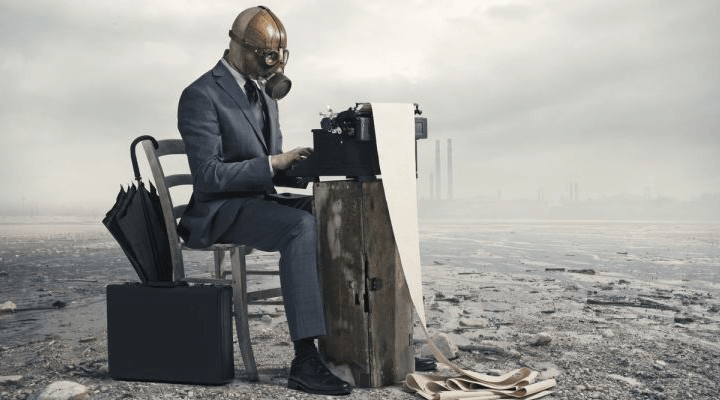Whistleblowers, as the term is generally used, expose wrongdoing in government or industry by first exhausting internal mechanisms, and then going public with the information, if necessary. We’ve come to associate the term with Edward Snowden, which is unfortunate—not because he is or is not a whistleblower–but because ordinary citizens who blow the whistle rarely make daring slips across the border before becoming celebrities. Instead, whistleblowers at the highest levels sometimes suffer prosaic consequences that can prove more devastating than mere exile. Here are five famous whistleblowers from the defense community, and what happened when they went public.
Blake Percival
When Blake Percival was promoted to director of fieldwork services at USIS, a firm contracted with the Office of Personnel Management, he discovered his employees in the Pennsylvania office were unhappy. He held a meeting to help improve morale among the security clearance investigators and learned a horrifying secret: USIS was endorsing people for clearances without actually performing the background checks. Not just a few, either: 665,000 investigations were “dumped,” or not reviewed. Percival immediately shut down the practice, but when his office fell behind in performing investigations (a result of actually performing the investigations) he was ordered by management to resume dumping files. He refused and was fired. To plug the gaping hole that now existed in national security, Percival blew the whistle on USIS. He was faced with an expensive lawsuit, a new mortgage (he had just moved to take the director job), and no money. To make ends meet, he took three jobs by necessity, including stocking grocery store shelves. In the end, he was compensated for his wrongful firing, and USIS lost its contract with OPM. You may have heard of at least two people who USIS “investigated” before being exposed: Aaron Alexis (the Navy Yard shooter) and Edward Snowden.
Frederic Whitehurst
J. Edgar Hoover was obsessed with “scientific crime detection” and as director, he made the FBI laboratory a centerpiece of Bureau operations and public outreach efforts. Fingerprinting, typewriter analysis, and forensic ballistics were among its hallmark efforts, and it’s no exaggeration to say that the FBI laboratory transformed the very notion of criminal investigations and how they should be run. If for no other reason, then, when Dr. Frederic Whitehurst blew the whistle in 1997 on the crime lab’s flawed scientific methods and proclivity for “pro-prosecution testimony,” the Bureau came down on him, and hard. He was transferred to the paint analysis division, he allegedly had derogatory information about him leaked to prosecutors, and he was eventually suspended with pay. Whitehurst was no G-5 with an axe to grind. Rather, he was the most renowned bomb residue expert in the world. To be clear: after he pointed out that the scientific crime detection laboratory wasn’t using actual science, the FBI forced the best bomb residue expert in the world to study paint. One year after going public, the FBI settled with Whitehurst in court for $1.166 million, and the White House issued an executive order establishing whistleblower protection for FBI agents. The Bureau subsequently reformed the crime laboratory.
Mark Felt
Nobody would call Mark Felt a troublemaker or malcontent. He was one of the FBI’s finest, and a trusted lieutenant of J. Edgar Hoover. When Hoover died, Nixon installed as director Patrick Gray, a Justice Department official, who Nixon felt would be a useful attaché at the Bureau. In practice, Gray was unsuited to the role, and Mark Felt ran the Bureau. Felt had access to all of the Watergate investigation files, knew higher-ups were complicit, didn’t trust Gray to bring Nixon to justice. He leaked to the Washington Post, and the rest is history. For what it’s worth, Nixon’s men suspected Felt was the leaker, but cautioned the president that “if we move on him [Felt], he’ll go out and unload everything. He knows everything that’s to be known in the FBI. He has access to absolutely everything.”
Samuel Shaw
Imagine for a moment that you are a midshipman in the Continental Navy. You’re as low ranking as an officer can get, there’s a brutal war being waged around you, and you’re living in a hardened era of lashings and duels. Now imagine you witness a Continental officer torturing British prisoners of war. And not just any officer: the commander-in-chief of the Continental Navy, whose brother was so powerful that he was a signatory to the Declaration of Independence. That’s the situation in which Samuel Shaw found himself during the American Revolution. He and small group of men went to the Continental Congress with this information. For his actions, the accused officer had Shaw jailed, thrown out of the Navy, and sued for libel. In the end, Commodore Esek Hopkins was dismissed from his position as Navy commander-in-chief, and the Continental Congress passed the first whistleblower protection law, which made it “the duty of all persons in the service of the United States, as well as all other inhabitants thereof, to give the earliest information to Congress or any other proper authority of any misconduct, frauds or misdemeanors committed by any officers or persons in the service of these states, which may come to their knowledge.”
Edward Snowden
Everything that can be written, recorded, tweeted, or blogged about Edward Snowden has been, so there’s little point to delve into it here. As a contractor working with the National Security Agency, Snowden discovered that the NSA was engaged in what he believed was unconstitutional surveillance of American citizens. After exhausting internal channels (“If you say something about this,” said sympathizers in the agency unwilling to back him up, “they’re going to destroy you”), Snowden downloaded a bevy of material both classified and open, and turned them over to a handful of journalists. He fled the country, and after the U.S. failed to extradite him from Hong Kong, it revoked his passport, leaving him stranded in Russia, where he has been since.



